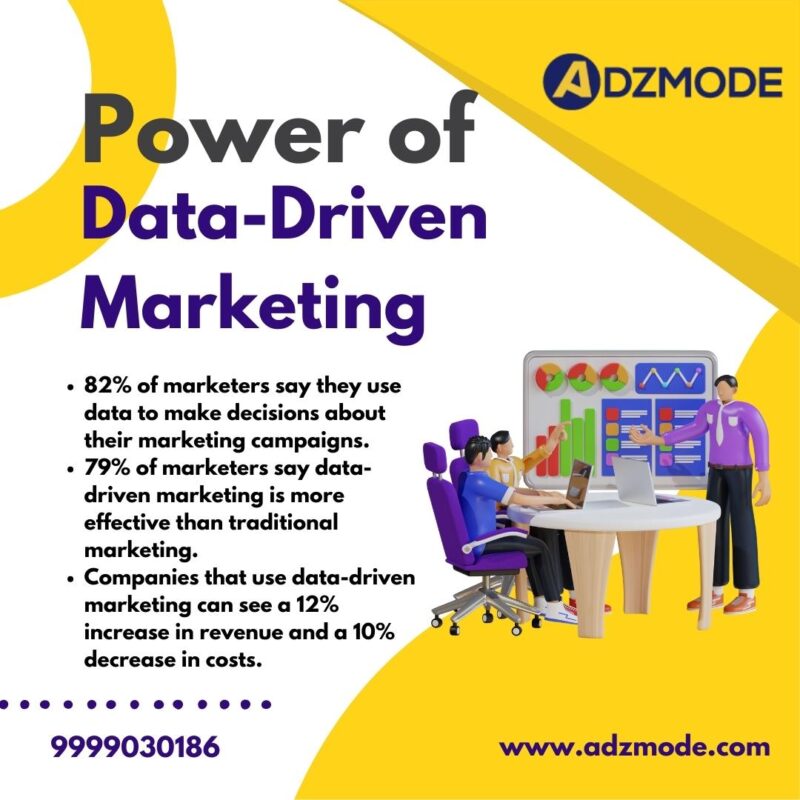
In today’s hyper-competitive real estate landscape, standing out from the crowd requires more than just a stunning property portfolio—it demands an innovative, data-driven approach to Real Estate Digital Marketing. Whether you’re a boutique agency or a large real estate firm, the digital realm offers many opportunities to attract qualified leads, nurture prospects, and ultimately convert interest into sales. In this comprehensive guide, we’ll walk you through the top 10 digital marketing strategies that can immediately boost your property sales. From leveraging social media and SEO to running effective paid ads, you’ll discover actionable tactics, step-by-step guidance, and inspiring success stories from industry leaders.
This article is designed to be both informative and interactive, equipping you with the knowledge and tools to craft campaigns that resonate with modern buyers. So, let’s dive into the transformative world of Real Estate Digital Marketing and explore strategies that not only drive traffic but also convert it into tangible sales.
- Build a Responsive Website with IDX Integration
A robust website serves as the digital storefront for your real estate business. It’s often the first point of contact for potential buyers, so it must be engaging, easy to navigate, and optimized for mobile devices.
Key Tactics:
- Responsive Design: Ensure your website adapts seamlessly to desktops, tablets, and smartphones. A responsive design improves user experience and is favored by search engines.
- IDX Integration: Integrate an IDX (Internet Data Exchange) solution that automatically pulls property listings into your website. This feature allows visitors to search and view available properties in real time.
- User-Friendly Interface: Incorporate clear navigation menus, high-quality images, and detailed property descriptions to enhance user engagement.
- Fast Load Times: Use tools like Google PageSpeed Insights to monitor and improve website load times. Faster websites lead to lower bounce rates and improved SEO rankings.
Step-by-Step Guide:
- Choose a Platform: Decide on a content management system (CMS) like WordPress, which offers numerous real estate themes (e.g., Houzez or Realtyna) and plugins for IDX integration.
- Select a Responsive Theme: Pick a theme that is not only visually appealing but also designed for responsiveness.
- Integrate IDX: Work with IDX providers to embed property search functionality. Ensure that the integration is smooth and that property data is updated automatically.
- Optimize Content: Use high-resolution images, engaging copy, and virtual tours to give potential buyers a thorough view of your listings.
- Test Across Devices: Regularly test your website on multiple devices to ensure consistency and usability.
Success Story:
A mid-sized real estate agency revamped their website with a responsive design and IDX integration. Within three months, they experienced a 40% increase in site traffic and a 25% uptick in inquiries directly linked to property searches. The ease of navigating listings on mobile devices proved particularly beneficial, driving higher engagement rates from younger, tech-savvy buyers.

- Optimize Your Search Engine Optimization (SEO) Strategy
SEO is crucial for ensuring your website ranks high on search engine results pages (SERPs), driving organic traffic without the continual expense of paid advertising.
Key Tactics:
- Keyword Research: Identify high-intent keywords relevant to your market, such as “luxury apartments in [City]” or “affordable homes for sale in [Location].” Tools like SEMrush, Ahrefs, and Google Keyword Planner can help you uncover valuable search terms.
- On-Page SEO: Optimize page titles, meta descriptions, header tags, and content with your target keywords. Ensure that every page on your site is structured for SEO.
- Local SEO: Real estate is inherently local. Optimize your website for local searches by including your city or region in your keywords, and claim and optimize your Google My Business listing.
- Content Marketing: Regularly publish blog posts, market reports, and neighborhood guides that provide valuable information to your audience while incorporating SEO best practices.
Step-by-Step Guide:
- Conduct Keyword Research: Use SEO tools to create a list of relevant keywords. Focus on long-tail keywords that reflect the specific needs of your audience.
- Audit Your Website: Use tools like Moz or SEMrush to perform an SEO audit. Identify areas for improvement such as broken links, slow-loading pages, or missing meta descriptions.
- Implement On-Page SEO: Optimize each webpage by incorporating your target keywords in strategic locations, including titles, URLs, and content.
- Leverage Local SEO: Create location-specific landing pages and ensure that your business information is consistent across online directories.
- Monitor and Adjust: Regularly track your SEO performance using Google Analytics and Search Console, and make adjustments based on your findings.
Success Story:
A renowned real estate firm in Los Angeles focused on local SEO by creating detailed neighborhood guides and market analysis reports. By targeting keywords like “best condos in Downtown LA” and “LA real estate market trends,” they saw a 60% increase in organic traffic over six months, resulting in a significant boost in high-quality leads.

- Leverage Social Media Marketing
Social media is an invaluable channel for real estate digital marketing, enabling you to reach a diverse audience, showcase properties visually, and engage directly with potential buyers.
Key Tactics:
- Platform Selection: Focus on platforms where your target audience is most active. Facebook, Instagram, LinkedIn, and even TikTok offer distinct advantages for real estate marketing.
- Content Strategy: Develop a content calendar that includes a mix of property listings, market insights, customer testimonials, and behind-the-scenes glimpses of your team. Use high-quality images and videos to captivate your audience.
- Live Virtual Tours: Host live virtual tours on platforms like Facebook Live or Instagram Live. This interactive format allows potential buyers to view properties in real time and ask questions.
- Paid Social Ads: Use social media advertising to boost your reach. Target ads based on demographics, location, and interests to ensure that your content reaches the right audience.
- Engagement: Respond promptly to comments and messages. Engaging with your audience builds trust and nurtures relationships.
Step-by-Step Guide:
- Identify Your Audience: Use platform analytics to determine where your potential buyers spend their time. Focus your efforts on those channels.
- Create a Content Calendar: Plan posts for the month ahead, balancing promotional content with informative and engaging posts.
- Invest in High-Quality Visuals: Use professional photography and videography to showcase properties. Consider hiring a social media manager or content creator if needed.
- Schedule Posts: Use social media management tools like Hootsuite or Buffer to schedule posts and maintain consistency.
- Monitor Engagement: Track metrics such as likes, shares, comments, and direct messages. Adjust your strategy based on what content resonates most with your audience.
Success Story:
A boutique real estate agency in New York leveraged Instagram to build its brand. By posting visually appealing property photos, stories, and hosting weekly live Q&A sessions, they grew their follower base by 150% in under a year. Their engaging social media presence translated into increased inquiries and higher conversion rates for property viewings and sales.
Visit: business growth strategies for small businesses
4. Implement Pay-Per-Click (PPC) Advertising
Paid advertising through PPC platforms is one of the fastest ways to generate immediate visibility and drive qualified traffic to your property listings.
Key Tactics:
- Google Ads: Create search and display campaigns targeting high-intent keywords. Utilize location-based targeting to reach buyers in specific regions.
- Facebook and Instagram Ads: Leverage the advanced targeting options on these platforms to create visually engaging ads that promote property listings, open houses, and special offers.
- Retargeting Campaigns: Use retargeting to reach users who have previously visited your website. Retargeting ads remind potential buyers about the properties they viewed and encourage them to take the next step.
Step-by-Step Guide:
- Set Clear Goals: Define what you want to achieve with your PPC campaigns—whether it’s increased website traffic, lead generation, or direct sales.
- Keyword Research: Identify high-converting keywords that reflect buyer intent. Focus on both generic and location-specific keywords.
- Craft Compelling Ads: Write ad copy that highlights key property features, unique selling points, and a strong call to action. Use high-quality visuals where applicable.
- Optimize Landing Pages: Ensure that the landing pages you direct traffic to are optimized for conversions. They should be visually appealing, load quickly, and provide clear next steps.
- Monitor and Adjust: Use analytics to track the performance of your campaigns. Regularly adjust bids, ad copy, and targeting parameters to maximize ROI.
Success Story:
A leading real estate firm in Chicago launched a Google Ads campaign targeting “luxury homes in Chicago” and “Chicago real estate investment.” Within three months, the campaign generated a 200% increase in website traffic and led to a substantial rise in qualified leads. By continuously refining their ad copy and adjusting their bidding strategy, they achieved a remarkable cost-per-lead reduction and improved overall campaign performance. Join the industry leaders who trust our top digital marketing agency in India, to boost their property sales. Get in touch today for a free consultation and start your journey to unparalleled growth.

- Engage with Email Marketing Campaigns
Email marketing remains one of the most effective channels for nurturing leads and keeping your audience engaged with your property listings and market updates.
Key Tactics:
- Segment Your Audience: Divide your email list into segments based on buyer intent, location, and previous interactions. This allows you to send targeted and personalized messages.
- Automated Drip Campaigns: Set up automated email sequences to nurture leads over time. These campaigns can include property updates, market insights, and personalized follow-ups.
- Interactive Content: Include elements like surveys, polls, and clickable property galleries to make your emails more engaging.
- Clear Call-to-Actions: Ensure that each email includes a clear, compelling call-to-action, whether it’s to schedule a viewing, download a market report, or visit your website for more details.
Step-by-Step Guide:
- Choose an Email Marketing Platform: Use platforms like Mailchimp, Constant Contact, or Sendinblue to manage your campaigns.
- Build Your List: Use lead magnets such as free market reports, property guides, or webinars to grow your email subscriber list.
- Create a Content Plan: Develop a schedule for sending emails, balancing promotional content with valuable insights.
- Design Engaging Templates: Use visually appealing templates that are mobile-responsive and aligned with your brand identity.
- Test and Optimize: A/B test subject lines, content formats, and sending times to determine what resonates best with your audience.
Success Story:
A real estate agency in San Francisco implemented an automated drip campaign that provided subscribers with weekly market updates and curated property listings. The targeted, personalized approach led to a 35% increase in email open rates and a 20% boost in conversion rates, proving that well-crafted email marketing can significantly impact property sales.
- Create High-Quality Content Marketing
Content marketing is a long-term strategy that establishes your agency as a trusted authority in the real estate market. Valuable content not only improves your SEO but also builds relationships with potential buyers by addressing their questions and concerns.
Key Tactics:
- Blog Posts and Articles: Write informative blog posts about market trends, property buying tips, neighborhood guides, and investment advice. Ensure that each piece is optimized for SEO.
- Infographics: Develop visually appealing infographics that simplify complex market data and trends. Infographics are highly shareable on social media and can drive additional traffic.
- eBooks and Whitepapers: Create comprehensive guides that delve into topics such as the home buying process or real estate investment strategies. Offer these as free downloads in exchange for email sign-ups.
- Interactive Content: Incorporate quizzes, calculators, or virtual property tours that engage visitors and provide personalized insights.
Step-by-Step Guide:
- Identify Topics: Use keyword research and competitor analysis to identify topics that are relevant to your audience.
- Plan a Content Calendar: Schedule regular content updates to keep your audience engaged and boost your SEO efforts.
- Produce High-Quality Content: Invest in quality writing, graphic design, and multimedia production. Consider hiring experts if needed.
- Promote Your Content: Share your content across social media channels, email newsletters, and online forums. Engage with your audience by responding to comments and questions.
- Measure Success: Use analytics tools to track the performance of your content. Monitor metrics like page views, time on page, and conversion rates.
Success Story:
An innovative real estate firm in Miami launched a blog series on “Neighborhood Spotlights” that detailed local amenities, market trends, and community stories. The content resonated strongly with both local buyers and investors, leading to a 50% increase in organic traffic and a notable boost in inquiries. The success of this content strategy positioned the firm as a go-to resource for real estate insights in the area.
Visit: effects of poor marketing strategy
- Utilize Virtual Tours and Video Marketing
The ability to experience a property remotely has become a game-changer in real estate. Virtual tours and video marketing allow potential buyers to explore properties in-depth without physically visiting, saving time and broadening your reach.
Key Tactics:
- 3D Virtual Tours: Use platforms like Matterport to create immersive 3D tours that allow users to navigate properties interactively.
- Property Videos: Produce high-quality videos showcasing property features, neighborhood highlights, and client testimonials.
- Live Streaming: Host live virtual open houses or Q&A sessions on platforms such as Facebook Live or YouTube. This interactive format builds trust and offers real-time engagement.
- Video SEO: Optimize your video titles, descriptions, and tags with relevant keywords to improve their discoverability on platforms like YouTube and Google.
Step-by-Step Guide:
- Plan Your Shoot: Identify the key selling points of the property and plan a storyboard for your video tour.
- Invest in Quality Equipment: Use a good camera, stabilizer, and lighting to ensure your videos are professional.
- Edit and Optimize: Edit your video to highlight the most engaging features. Add captions and clear call-to-actions.
- Promote Widely: Share your videos on your website, social media channels, and email newsletters.
- Track Engagement: Monitor video analytics to understand viewer behavior and adjust your content strategy accordingly.
Success Story:
A luxury real estate agency in San Diego introduced 3D virtual tours and property videos into their marketing strategy. The virtual tours not only increased engagement on their website but also reduced the number of unnecessary in-person visits by pre-qualifying interested buyers. As a result, they reported a 30% increase in conversion rates from inquiries to viewings.
- Adopt Data Analytics and Customer Relationship Management (CRM)
Leveraging data is essential for refining your marketing strategies and ensuring every dollar spent contributes to increased sales. Analytics and CRM tools help you track user behavior, measure campaign performance, and nurture leads throughout the sales funnel.
Key Tactics:
- Google Analytics: Use Google Analytics to monitor website traffic, user behavior, and conversion rates. Identify which marketing channels yield the highest ROI.
- Heatmaps and User Recordings: Tools like Hotjar provide insights into how visitors interact with your website. Use this data to optimize page layouts and improve user experience.
- CRM Systems: Implement a robust CRM system (such as HubSpot, Zoho CRM, or Follow Up Boss) tailored for real estate. Track interactions, manage leads, and automate follow-up communications.
- A/B Testing: Regularly test different versions of landing pages, ad copy, and email campaigns to determine what works best with your audience.
Step-by-Step Guide:
- Set Up Analytics: Install Google Analytics and configure conversion tracking on your website.
- Integrate Your CRM: Choose a CRM platform that suits your business needs and integrate it with your website and marketing channels.
- Monitor Data: Regularly review performance metrics and user behavior data. Identify trends and areas for improvement.
- Test and Refine: Use A/B testing to compare different marketing strategies. Implement changes based on data-driven insights.
- Report and Adjust: Generate regular reports to evaluate the effectiveness of your campaigns. Adjust strategies based on what the data tells you.
Success Story:
A real estate agency in Austin implemented a comprehensive analytics and CRM system to streamline its marketing efforts. By analyzing data from Google Analytics and leveraging CRM insights, they were able to optimize their lead nurturing process and improve their conversion rates by 25%. The agency’s ability to adapt its campaigns based on real-time data was key to sustaining long-term growth. Ready to revolutionize your real estate business? Let our tailored digital marketing services drive your sales and elevate your brand in a crowded market.

- Harness the Power of Local SEO and Google My Business
For real estate businesses, local visibility is paramount. Local SEO ensures that your agency appears prominently in local searches, while Google My Business (GMB) enhances your online presence and credibility.
Key Tactics:
- Optimize GMB Listing: Claim and optimize your Google My Business listing with accurate contact information, high-quality images, and up-to-date property listings.
- Local Citations: Build local citations by listing your agency on relevant directories and ensuring consistency across all platforms.
- Encourage Reviews: Positive reviews on GMB and other review sites build trust and improve local search rankings. Encourage satisfied clients to share their experiences.
- Localized Content: Create content that speaks directly to your local audience—such as neighborhood guides, local market trends, and community event announcements.
Step-by-Step Guide:
- Claim Your Listing: Ensure that your business is verified on Google My Business.
- Optimize Profile: Update your listing with detailed descriptions, accurate business hours, and high-quality visuals.
- Solicit Reviews: Develop a strategy to encourage happy clients to leave reviews, whether via follow-up emails or during in-person interactions.
- Monitor Local Rankings: Use local SEO tools to track your performance in local search results.
- Engage with Local Content: Regularly publish localized content on your website and social media channels.
Success Story:
A regional real estate firm in Denver focused on local SEO and optimized their Google My Business listing. By actively engaging with local content and encouraging client reviews, they rose to the top of local search results. This increased visibility resulted in a significant boost in both web traffic and direct inquiries from local buyers.

- Build Partnerships and Leverage Online Reviews
In an industry driven by trust, partnerships and online reputation management play crucial roles. Forming strategic partnerships with local businesses, mortgage brokers, and community organizations can extend your reach, while a strong portfolio of online reviews builds credibility with potential buyers.
Key Tactics:
- Collaborative Marketing: Partner with complementary businesses to co-host webinars, co-author content, or run joint social media campaigns. This can expand your audience and provide additional value to potential buyers.
- Influencer Collaborations: Work with local influencers or real estate bloggers to gain third-party endorsements and reach a broader audience.
- Review Management: Actively manage your online reputation by responding to reviews—both positive and negative—in a professional manner. Use review sites and social media as platforms to build trust.
- Client Testimonials: Highlight success stories and testimonials on your website and marketing materials. Authentic client stories are powerful tools for converting prospects.
Step-by-Step Guide:
- Identify Potential Partners: Look for businesses or influencers that align with your brand and target audience.
- Develop a Partnership Proposal: Outline mutual benefits and potential collaborative projects.
- Execute Joint Campaigns: Plan and launch collaborative marketing initiatives, tracking performance and engagement.
- Collect and Display Reviews: Regularly solicit feedback from clients and showcase their testimonials on your website and social channels.
- Maintain Relationships: Continue nurturing these partnerships for ongoing mutual benefits.
Success Story:
A well-established real estate agency in Boston built strategic partnerships with local financial advisors and home staging companies. By featuring collaborative webinars and joint content, they not only expanded their network but also garnered a wealth of positive client testimonials. This collaborative approach enhanced their credibility and directly contributed to an increase in property sales by 20%.
Visit: 7 Ps of digital marketing success
Bringing It All Together: Implementing Your Digital Marketing Strategy
With these top 10 strategies in your arsenal, you now have a comprehensive roadmap to drive property sales through Real Estate Digital Marketing. The key to success lies in executing these strategies with consistency and continually refining your approach based on performance data.
Action Plan:
- Audit Your Current Digital Presence: Evaluate your website, social media channels, and existing marketing campaigns to identify strengths and areas for improvement.
- Prioritize Strategies: Based on your resources and target audience, determine which strategies will have the greatest impact on your business.
- Set Measurable Goals: Define clear objectives—such as increasing website traffic, generating more qualified leads, or boosting conversion rates—and set a timeline for achieving them.
- Implement Tactics Step-by-Step: Follow the step-by-step guidance provided for each strategy. Whether you’re optimizing your SEO, launching a PPC campaign, or enhancing your social media presence, take deliberate, measurable actions.
- Monitor and Analyze: Use analytics tools to track your progress. Regularly review data from Google Analytics, social media insights, and CRM systems to understand what’s working and where adjustments are needed.
- Engage and Adapt: Stay interactive with your audience by soliciting feedback, conducting surveys, and engaging in online discussions. Adapt your strategies based on the insights you gather.
Interactive Element:
As you work through these strategies, consider using interactive tools such as online goal-setting worksheets, A/B testing platforms, and analytics dashboards. Engage with your team or clients by hosting strategy workshops or feedback sessions to refine your approach continually.
Conclusion: Embracing the Future of Real Estate Digital Marketing
In the ever-evolving landscape of property sales, mastering digital marketing is no longer optional—it’s essential. By embracing these top 10 strategies, you can harness the full potential of Real Estate Digital Marketing to drive targeted traffic, generate high-quality leads, and ultimately boost property sales. From creating a responsive website with IDX integration and optimizing your SEO, to leveraging social media, PPC, email marketing, and online reviews, every tactic plays a critical role in building a comprehensive, effective digital marketing strategy.
The success stories and actionable steps detailed in this article demonstrate that with the right approach, real estate agencies can not only reach a broader audience but also convert that audience into loyal, satisfied clients. As you implement these strategies, remember that consistency, data-driven decision-making, and continuous learning are the keys to sustainable success. Start today by auditing your current digital presence, setting clear goals, and deploying these strategies one step at a time. The future of real estate marketing is digital, and by embracing these tactics, you position your agency for unparalleled growth and success.
Thank you for exploring these actionable strategies for boosting property sales through Real Estate Digital Marketing. We invite you to share your experiences, ask questions, and interact with fellow professionals as you implement these tactics. Embrace the digital revolution, refine your approach, and watch as your property sales soar to new heights.
Share Your Project Requirements With Us






